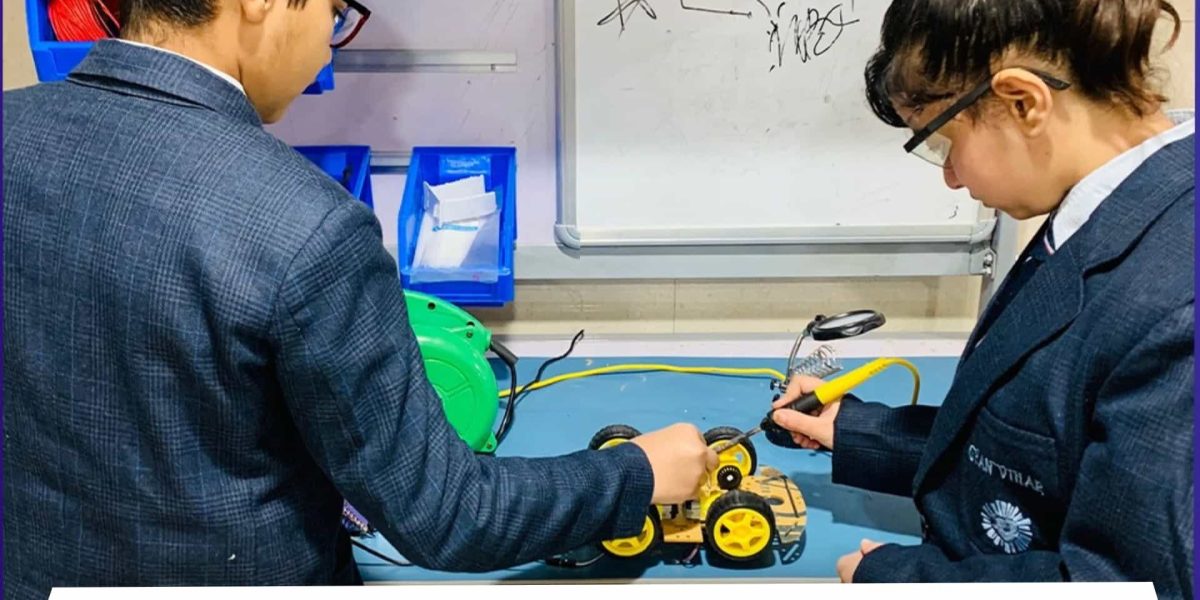Creating a productive study environment is essential for students to excel in their academic journey. Well-organized study space can significantly impact a student’s motivation, focus, and overall learning experience. In this blog, we will explore practical tips to help students design an optimal study environment that fosters productivity and keeps them motivated throughout their academic pursuits.
Choose the Right Location:
Selecting the right location for studying is the first step in creating a productive study environment. Find a quiet and well-lit area in your home or dormitory where distractions are minimal. If possible, designate a specific corner or room solely for studying, to create a psychological association between that space and productivity.
Keep it Organized:
A cluttered study area can lead to a cluttered mind. Organize your study space by decluttering unnecessary items and keeping essential study materials within arm’s reach. Invest in shelves, drawers, or organizers to keep books, notebooks, and stationery in order, making it easier to locate them when needed.
Personalize the Space:
Adding a personal touch to the study environment can enhance motivation. Decorate the space with motivational posters, inspiring quotes, or pictures of role models to remind you of your academic goals and aspirations. Make sure the decorations are not overly distracting but rather serve as gentle reminders of your purpose.
Ensure Proper Lighting:
Good lighting is crucial for maintaining focus and preventing eye strain. Natural light is the best option, so position your study desk near a window if possible. When studying during the evening or at night, use a desk lamp with adequate brightness to ensure a comfortable study atmosphere.
Comfortable Seating:
An uncomfortable chair can lead to physical discomfort and distract you from studying. Invest in an ergonomic chair that supports good posture and allows you to sit for extended periods without strain. Avoid studying on your bed, as it may tempt you to relax rather than concentrate on your work.
Minimize Digital Distractions:
Digital devices like smartphones, tablets, and laptops can be significant distractions. Keep them away from your study area or use website blockers to limit access to non-essential websites and apps while studying. If you need your computer for study purposes, create a separate user account with only educational resources accessible.
Utilize Color Psychology:
Colors can impact your mood and productivity. Consider incorporating colors like blue or green in your study space, as they are known for enhancing focus and concentration. Avoid using bright, distracting colors that may lead to restlessness.
Establish a Study Routine:
Consistency is key to staying motivated. Set a daily study routine and stick to it as much as possible. Knowing that there’s a specific time dedicated to studying each day can help you mentally prepare and stay motivated.
Take Regular Breaks:
While creating a productive study environment is essential, it’s equally important to take regular breaks. Short breaks can rejuvenate your mind, prevent burnout, and maintain motivation. Use break times to stretch, take a walk, or practice relaxation techniques.
A productive study environment plays a vital role in keeping students motivated and focused on their academic journey. By implementing the tips mentioned in this blog, students can create an organized, personalized, and distraction-free study space that promotes learning, productivity, and success. Remember, a well-structured study environment is an investment in your future achievements. Stay motivated, and let your study space inspire you to reach new heights in your academic pursuits.







